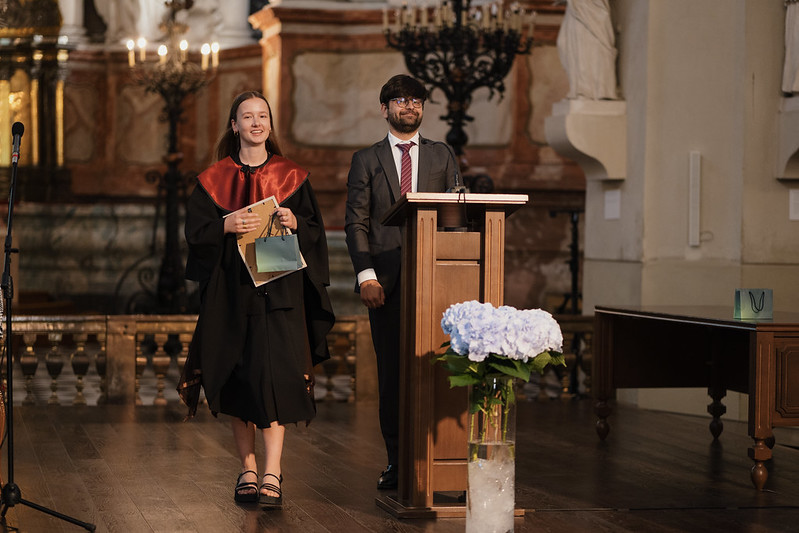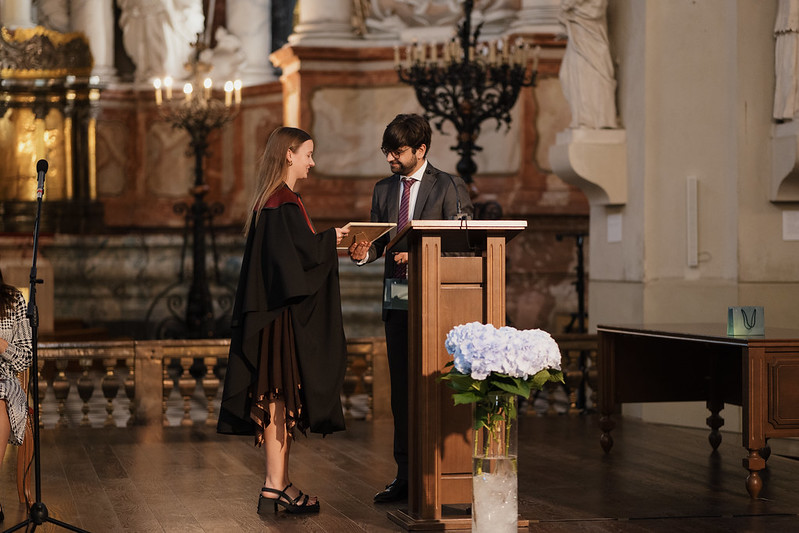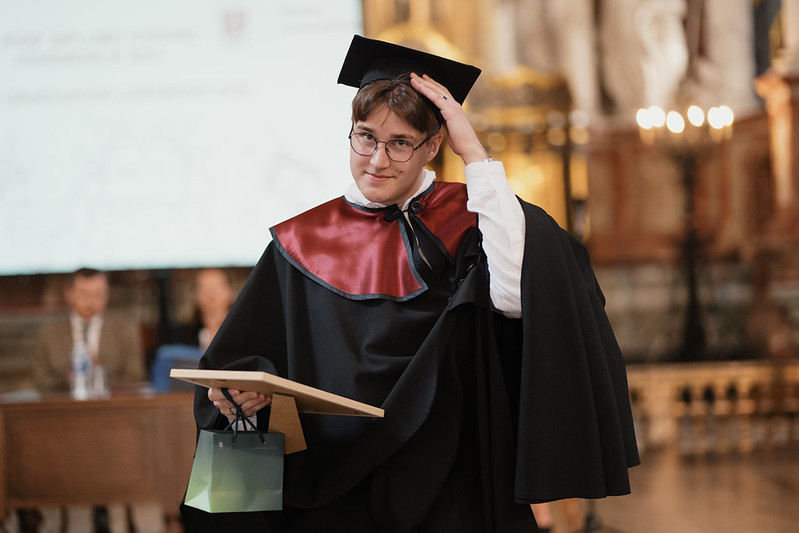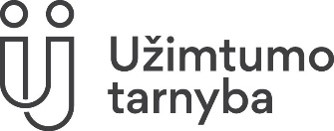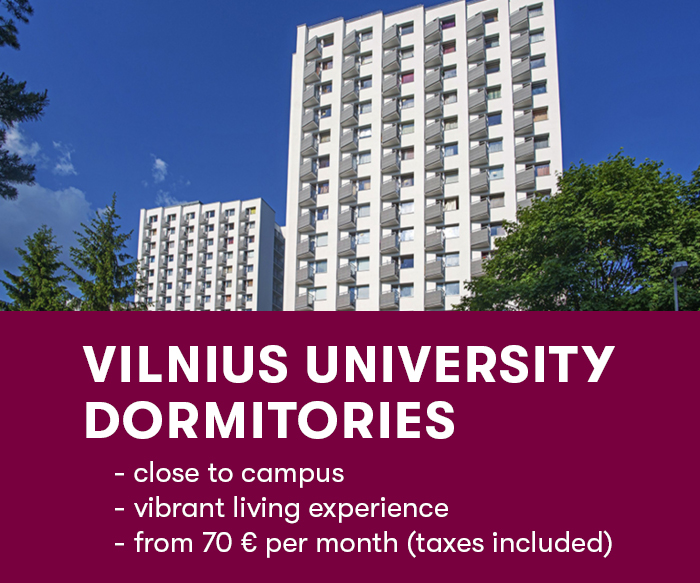- About
- Syllabus
- Career Opportunities
- Admission
- Testimonials
- Fee & Finances
- Double Degree
- Contact us
- For Students
About


- Are you interested in economics, finance, or data analysis?
- Do you want to understand how our societies function and how their economic and financial systems can be improved?
- Do you want to learn how to work with data?
- Do you want to learn about mathematical and econometric modelling of socio-economic phenomena?
If you answered at least two of the above questions with yes, the brand new three-year, English-taught BSc in Quantitative Economics may be just the right programme for you.
The Quantitative Economics (QE) programme was created by the Bank of Lithuania researchers trained at the world’s best universities to transform economics education in the country. The course structure ensures an in-depth coverage of critical fields, namely data science and computing, finance, and economics, which are highly valuable in the job market. Over time, other programmes have adopted similar structures, yet QE remains the most challenging, selective, and supportive programme. Each student has to pass a higher minimum grade bar and, upon admission, is matched with a senior mentor who provides tailored academic, career, and social advice. The QE programme is taught by research-active lecturers and professors with PhDs from leading universities worldwide, helping to keep the contents of the course up to date. In addition, it is based on the CORE project, OpenStax and other modern teaching methods in economics and finance. Last but not least, the scholarships for the best students are provided by social partners, such as the Bank of Lithuania and Nasdaq, to mention a few.
You Will Learn
Study Overview
The Quantitative Economics programme strives to use effective methods and resources to instil a deep understanding of economics and drive for learning.
Relevance. In the programme's first year, economics teaching extensively uses the CORE project. The CORE project provides open-source, high-quality resources that present the principles of economics through the lenses of relevant problems modern societies face. Thus, besides developing a rigorous quantitative background in the Mathematical Methods and Statistics courses, QE students have access to a broader context that highlights the relevance of economics.
Application. The Statistical theory course complements standard texts in statistics with OpenStax. OpenStax emphasises the application of theory and provides tools to enhance application skills. The programme also introduces students to the modern tools of financial data analysis – the sequence of finance courses integrates classroom learning with the use of Bloomberg LAB.
Research-oriented. One of the most distinguishing features of QE is its orientation to research. The teachers are active in research, so in the courses, they aim to combine analytical rigour with economic intuition and nudge students to ask questions about causality, identification, assumptions, and implications. The courses in the programme's third year are specially designed to provide students with a glimpse of questions asked at the frontier of economics research.
Mentoring. Small cohorts allow teachers to use more interactive teaching methods: discussion, data projects and presentations, to name a few. Besides this, to provide individual guidance on academic matters, every student is assigned a tutor – a professor who teaches at the programme and follows their progress throughout the programme.
Lecturers
 Laura Galdikienė
Laura Galdikienė Eglė Jakučionytė
Eglė Jakučionytė Algirdas Bartkus
Algirdas Bartkus Andrius Kažukauskas
Andrius Kažukauskas Aurelija Proškutė
Aurelija Proškutė Marius Jurgilas
Marius Jurgilas Mustapha Douch
Mustapha Douch Jose Garcia Louzao
Jose Garcia Louzao Justina Klimavičiūtė-Bartkienė
Justina Klimavičiūtė-Bartkienė Linas Tarasonis
Linas Tarasonis Renata Guobužaitė
Renata Guobužaitė Soroosh Soofi Siavash
Soroosh Soofi Siavash Povilas Lastauskas
Povilas Lastauskas Nora Marija Laurinaitytė
Nora Marija Laurinaitytė Ieva Mikaliūnaitė-Jouvanceau
Ieva Mikaliūnaitė-Jouvanceau Junghum Park
Junghum Park Žymantas Budrys
Žymantas Budrys Artūras Juodis
Artūras Juodis Anup Mulay
Anup Mulay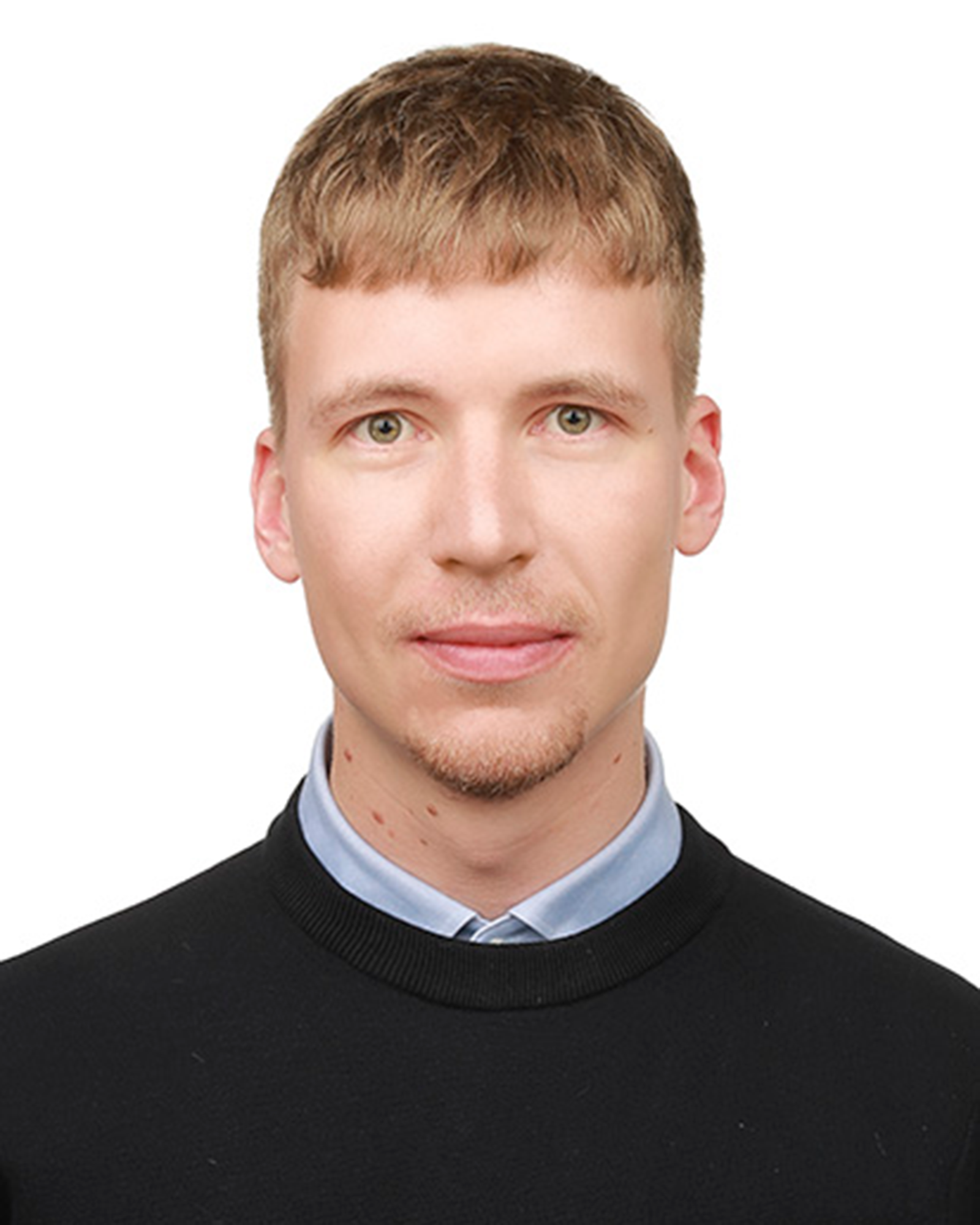 Stefan Girstmair
Stefan Girstmair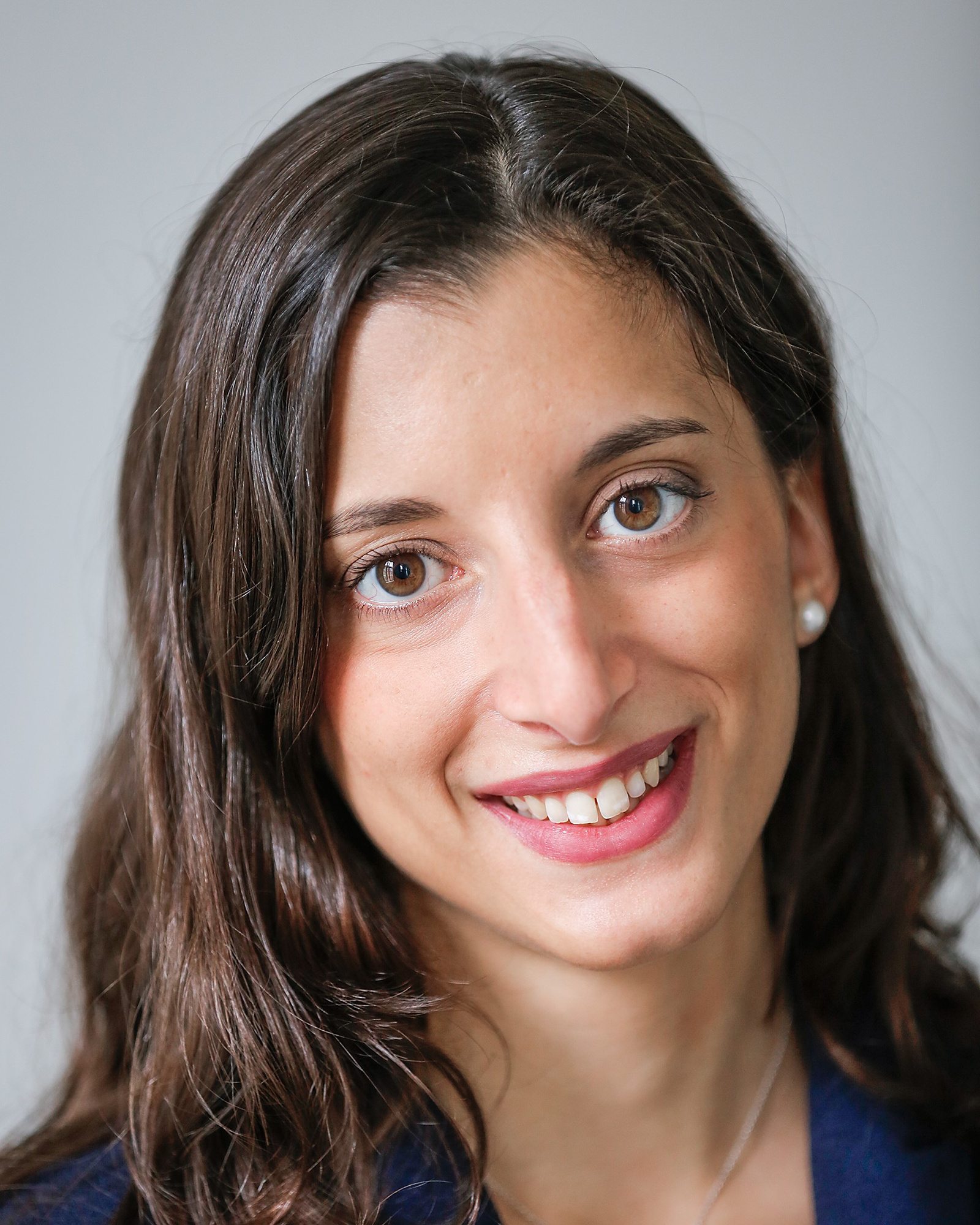 Federica Brenna
Federica Brenna Robertas Zubrickas
Robertas Zubrickas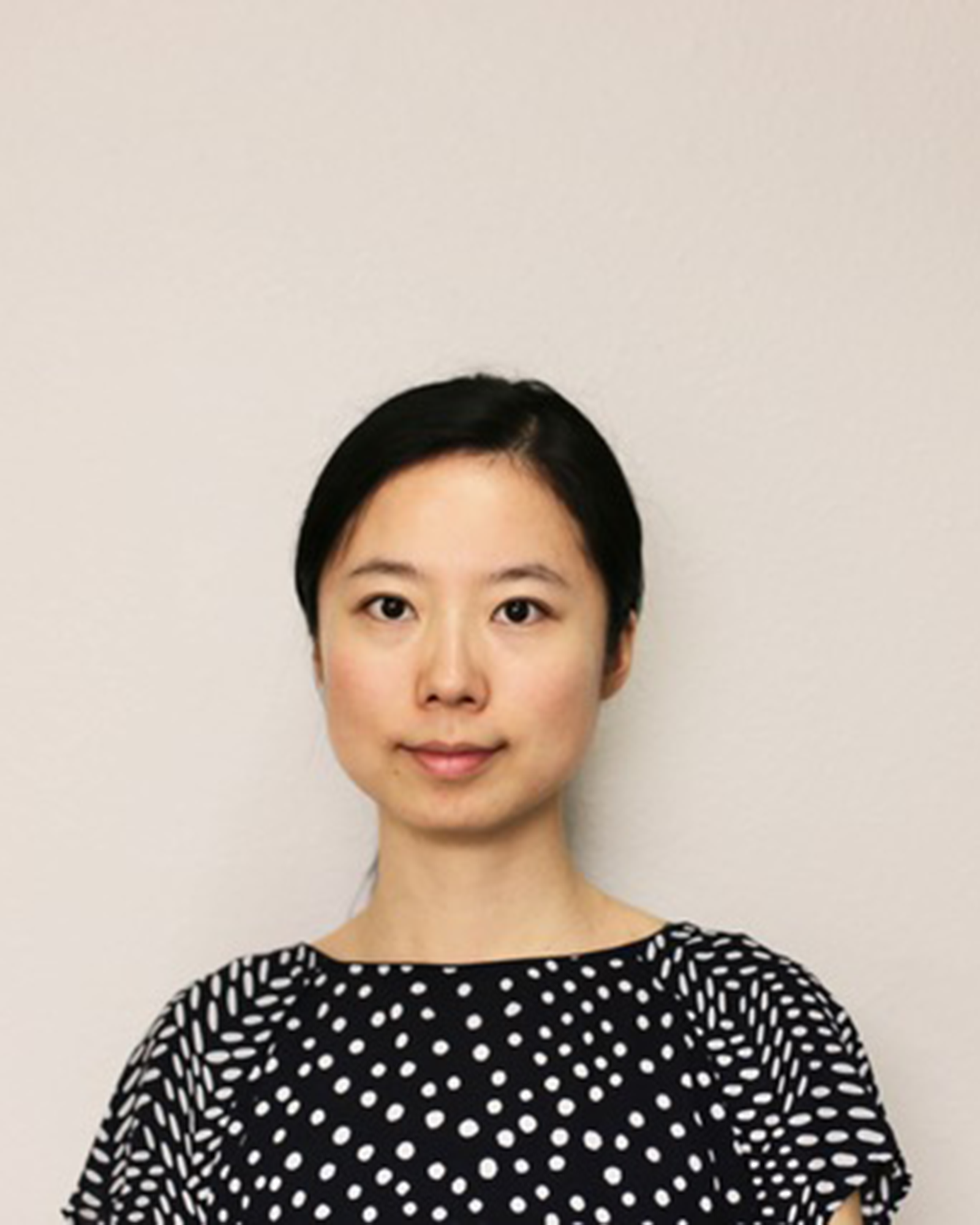 Yue Qin
Yue Qin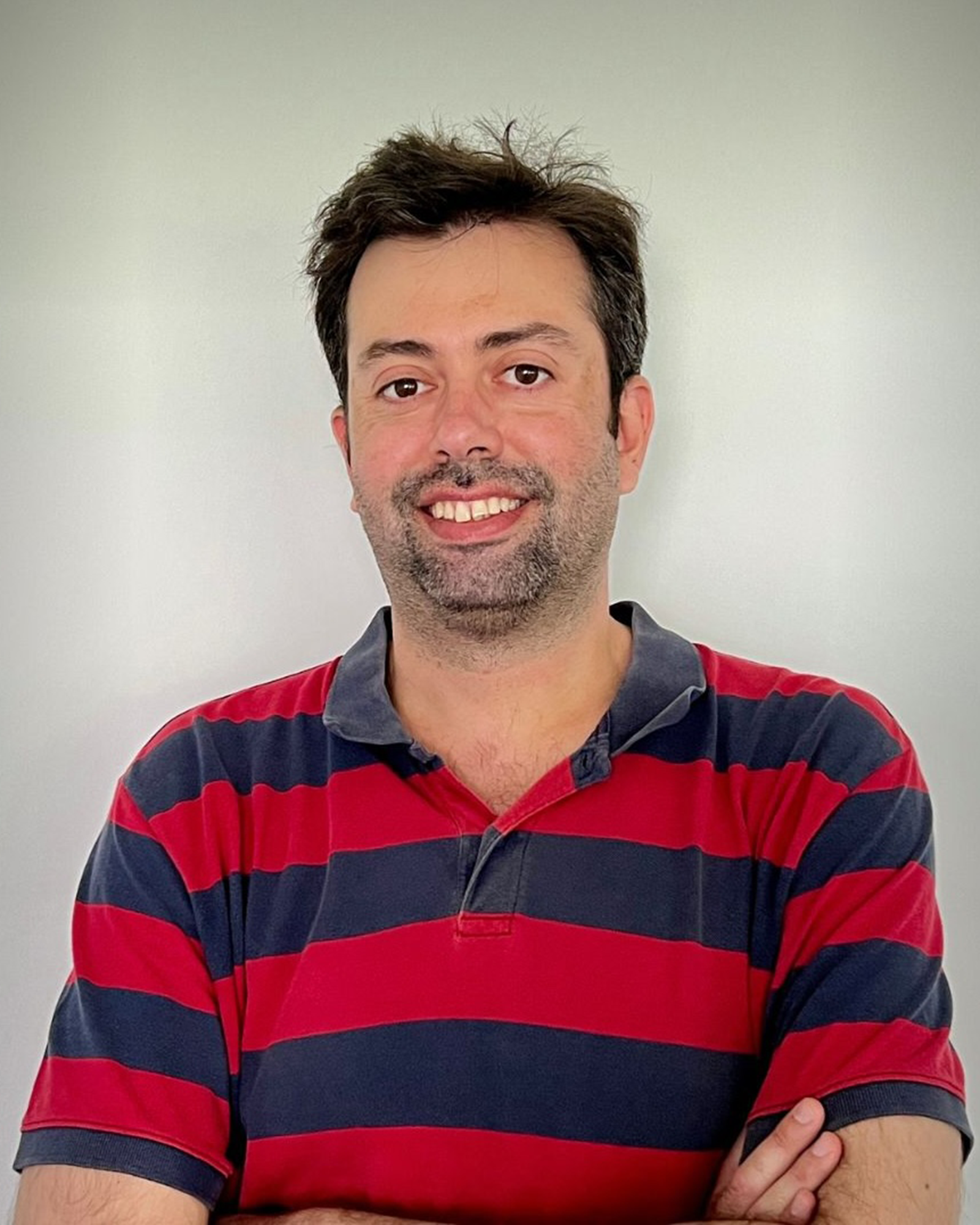 Guillermo Hausmann Guil
Guillermo Hausmann Guil
Syllabus
Quantitative Economics offers a dynamic curriculum tailored for those intrigued by economics, finance, and data analysis. This three-year program stands out for its rigorous approach and practical relevance. From day one, students delve into foundational economic principles, supplemented with comprehensive courses in mathematical methods and statistics.
As students progress, they engage in advanced coursework, including economic theory, econometrics, and finance, all taught by research-active faculty who blend analytical rigour with economic intuition.
In the final year, students undertake a capstone project and internship, providing opportunities to apply their skills in real-world settings and cementing their understanding of quantitative economics.
Throughout the years, a diverse range of elective courses and individual studies empowers students to tailor their academic journey to their specific interests and career goals. Through elective courses, students can deepen their expertise in specialized areas of economics, finance and data analysis. Moreover, individual studies provide the flexibility for students to explore interdisciplinary topics, and pursue courses in other study fields. Whether delving into a minor field of study, mastering a foreign language, or engaging in in-depth research projects, these opportunities enable students to create a unique profile that reflects their passions and aspirations, preparing them for success in a rapidly evolving global landscape.
Bachelor's Theses 2021
In 2021 the first cohort of the Quantitative Economics programme defended their BSc theses.
Four students received the highest evaluation (10). During the graduation ceremony they were also awarded collector coins by the Bank of Lithuania – the social partner of this programme.
The highest evaluation was given to these BSc theses:
| Student | BSc Thesis Topic |
| Justas Daujotas | The JOBS Act: Implications for U.S. IPO Valuation |
| Gytis Imbrasas | Firms' Response to Global Macroeconomic Shocks: Evidence from the 2020 Pandemic |
| Rūta Sičiūnaitė | Why Are Excess Reserves So High in the Eurozone? |
| Kristijonas Vėlyvis | EuroLeague Betting Market and its Efficiency |
The full list of topics and (sub-)fields in 2021 is provided below.
| (Sub-)Field | BSc Thesis Topic |
| Behavioral Economics | Measuring Risk Preferences Using Behavioral Lab Experiments |
| Energy Economics | The Formation of the Electricity Market in Lithuania: the Impact of Wind Power on Electricity Prices |
| Environmental Economics | Diesel Vehicles and the Environmental Kuznets Curve Hypothesis |
| Finance | The JOBS Act: Implications for U.S. IPO Valuation |
| Determinants that Impact the Possibility of a Successful Consumer Loan Deal in the Loan-Comparison Platform | |
| Assessing the Impact of Covid-19 on Stock Market Volatility | |
| Health Economics | Effectiveness of Tobacco Taxation on Smoking Prevalence and Consumption: Case of Italy |
| The Impact of Marriage on Health: Evidence from Lithuania | |
| Labor Economics | Is There a Glass Ceiling in Lithuania? |
| Automation and Jobs: Evidence from Lithuanian Labor Market | |
| Job Search Behavior of Employed and Unemployed People in Lithuania | |
| Macroeconomics | Assessing the Covid-19 impact on the new-Keynesian Phillips Curve |
| Uncertainty in the Euro Area and its Macroeconomic Effects | |
| The Role of Agent Heterogeneity in a Macroeconomic Model with Labor Market Frictions | |
| How do Aggregate Macroeconomic Variables and Valuation Ratios Perform in Forecasting House Price Growth in Lithuania? | |
| Household Savings and Uncertainty in Baltic Countries | |
| What Drives Economic Growth and Productivity in Lithuania? | |
| Housing Markets and the Impact of COVID-19 in European Countries: a VAR analysis | |
| Effectiveness of Government Measures Aimed at Preserving Jobs and People's Income During the COVID-19 Pandemic | |
| Macrofinance | The Impact of Foreclosure Laws on Mortgage Loan Size: Evidence from the United States for Pre-crisis and Post-crisis Periods |
| Impact of Financial Innovations on Global Economic Growth: A Survey | |
| Microeconomics | The effects of COVID-19 on the number of workers across different industries in Lithuania |
| Firms' Response to Global Macroeconomic Shocks: Evidence from the 2020 Pandemic | |
| The Impact of Thumbnails on Video Popularity in the YouTube "How To" Sphere | |
| Age Discrimination in Professional Sports: Evidence from the NBA | |
| EuroLeague Betting Market and its Efficiency | |
| Monetary Economics | Why Are Excess Reserves So High in the Eurozone? |
| Spatial Economics | Spatial analysis of COVID-19 Impact on Industries |
Bachelor's Theses 2022
| (Sub-)Field | BSc Thesis Topic |
| Energy Economics | Effects of Nuclear Power Phase-Out in the World: How Nuclear Power Affects Electricity Price in Sweden? |
| The Realised Energy Savings of Residential Building Retrofit Program in Lithuania | |
| Finance | An Empirical Study of Special Purpose Acquisition Companies Post-Merger Performance in the United States |
| Labor Economics | The Gender Wage Gap Across and Within Firms: Evidence from Lithuania |
| Returns to Tenure and Education in Lithuanian Labor Market | |
| Gender Pay Gap Over the Life Cycle in Lithuania | |
| Macroeconomics | The Relationship Between Economic Growth and Social Expenditure |
| Robustness of Static Versus Dynamic Specifications of Okun's Law: Evidence From the Baltic States | |
| How Stable is the Predictive Power of Term Spread? Evidence from the United States, the United Kingdom and Germany | |
| The Impact of Uncertainty on Investment and Productivity: Evidence from Brexit and COVID-19 Shocks | |
| Microeconomics | Retail Food Prices: Regimes of Price Stickiness and the Effect of Oil Price |
| Corruption and Productivity: Does Firm-Level Analysis Support Country-Level Evidences? | |
| Impact of Base Erosion and Profit Shifting on Performance of Subsidiaries of Multinational Corporations in Baltic Countries | |
| Spatial Economics | Spatial and Temporal Diffusion of Flat Prices in Lithuania |
Bachelor's Theses 2023
| (Sub-)Field | BSc Thesis Topic |
| Energy Economics | Price and Income Elasticities of Transport Fuel Demand in EU Countries |
| The Effect of Nudges on Prices and Price Sensitivity in a Retail Electricity Market Environment | |
| Environmental Economics | Environmental Taxes and Greenhouse Gas Emissions in European Union Countries |
| Finance | The Relationship Between ESG Scores and Financial Performance in Nordic Region Companies |
| Factor-Based Portfolio Construction: An Empirical Analysis Using Quantitative Methods | |
| Application of the Black, Jensen, and Scholes Asset Pricing Model to the Baltic Market | |
| What Moves Yield Spreads for Sovereign Bonds? Evidence From Eight European Countries | |
| Health Economics | Long-Term Care Insurance Puzzle |
| Labor Economics | The Impact of the Minimum Wage Increase on Economic Growth |
| Stylized Facts on Occupational Mobility in Lithuania | |
| Macroeconomics | China Is Catching Up on Automation: What to Expect? |
| Revisiting Okun’s Law: Evidence From Advanced Economies | |
| Assessing Spillovers and Connectedness Structures of Sovereign Bonds: Evidence From Central Eastern Europe | |
| The Comparison of the Performance of Macroeconomic Variables in Forecasting Fuel Price Growth in Lithuania | |
| Macrofinance | Impact of Non-interest Rate Policies on Housing Market |
| Microeconomics | Webcomic Creators’ Decision to Multi-Home: Empirical and Theoretical Analysis |
| Assessing the Impact of Smart Nudging Strategies Using Counterfactual Evaluation | |
| Household Income Change Sensitivity to External Factors | |
| The Role of Location on Inequality in Lithuania |
Bachelor's Theses 2024
The Bank of Lithuania awarded the best bachelor's theses of the Quantitative Economics program. The prize established by the Bank of Lithuania – commemorative coins – was awarded to Sofija Volungevičiūtė and Paulius Kazlauskas.
In her thesis "The labour market consequences of Motherhood in Lithuania: evidence from social security data" Sofija examines the so-called "motherhood penalty" phenomenon in Lithuania. The study aims to better understand the main factors that contribute to the negative impact of motherhood on overall income.
In his thesis "Testing for non-linear trade and financial linkages: evidence from panel data" Paulius explores the relationship between trade intensity and cross-border portfolio investments.
| (Sub-)Field | BSc Thesis Topic |
| Energy Economics | The Impact Of The Ukraine - Russia War Induced Energy Price Shocks On Economic Stability: A Comparative Study Of Lithuania And Germany |
| Environmental Economics | The Premium Of Green Corporate Bonds |
| Climate Change On Real Economic Activity | |
| The Importance Of Weather Data In Predicting Agricultural Gross Value Added Using Machine Learning | |
| Finance | Assessing The Predictability Of The Stock Market And REIT Returns: A Cross-Country Analysis |
| Can You Beat The Market? Comparison Of Investment Returns Of Various Investment Strategies And The Average Market Performance | |
| Tail Risk And Stock Returns | |
| Analysis Of Selected Asset Classes Returns In The Us Over The Past Two Decades Of The 21St Century | |
| Innovative Resilience: Evaluating Biomedical Portfolio Performance Across Pre-Pandemic, Pandemic, And Post-Pandemic Periods | |
| Labor Economics | Income Inequality In Professional Sports: Evidence From The NBA |
| The Public-Private Sector Wage Gap In Lithuania: Evidence From Social Security Data | |
| The Labor Market Consequences Of Motherhood In Lithuania: Evidence From Social Security Data | |
| Macroeconomics | Assessing The Predictive Power Of Car Sales On Lithuania's Economic Fluctuations |
| Effects Of High Interest Rates On Credit And Real Economy In Lithuania | |
| Monetary Policy Effects On Real Estate Prices In Lithuania | |
| Effects of Monetary and Macro-prudential Policies on Credit and Real Economy in Lithuania | |
| Testing For Non-Linear Trade And Financial Linkages: Evidence From Panel Data | |
| Behavioral Economics | The Influence Of Artificial Intelligence Advisement Through Chatgpt On Player Strategies And Outcomes In The Ultimatum Game: A Comparative Analysis |
| Microeconomics | Effectiveness Of Policy Instruments In Promoting Electric Vehicle Purchases: The Case Of Lithuania |
| Gazelles Vs High-Growth Firms: A Comparative Analysis Of Growth Determinants | |
Career Opportunities
Our programme can equip you with the necessary skills to pursue a wide range of career opportunities. To get an idea of the career paths available, it is useful to learn about our alumni.

Explore alumni career diversity in positions:

Here QE students get employed or do internships:

38% of graduates pursue further studies
- With 38% of our alumni choosing to further their studies, the doors to continuous growth and advancement remain wide open.
- Examples of placements of QE students in university master programs over the past 3 years: Bocconi University (Italy), Erasmus University Rotterdam (Netherlands), Lund University (Sweden), University of Amsterdam (Netherlands), Universitat Autònoma de Barcelona (Spain).
Support to build your career
- Feeling uncertain about which path to take? Fear not, for you'll have the unwavering support of senior mentors and dedicated career services at the university, guiding you towards clarity and confidence in your choices.
- During the sixth semester of our program, students engage in enriching internships, offering a unique opportunity to apply theoretical knowledge in real-world settings. This hands-on experience fosters practical skills development and prepares students for future career success. (guidelines for internships).
- Beyond graduation, our vibrant alumni community continues to grow larger, fostering connections through engaging social events and invaluable advice-sharing.
- We aim to build and maintain relationships with esteemed social partners, ensuring our curriculum remains aligned with the evolving demands of the workforce. Discover the endorsements that underscore our Quantitative Economics programme below.
Endorsements

The Quantitative Economics programme offers an unparalleled commitment to excellence in economics education that is valued in central banking. The programme's rigorous curriculum, research-oriented approach and mentoring system provide students with a unique blend of quantitative skills, practical application and in-depth understanding of contemporary economic challenges.
Gediminas Šimkus, Chairman of the Board of the Bank of Lithuania
 We are after graduates with rigorous quantitative skills, economic intuition, and capacity to distill complex economic ideas into simple words.
We are after graduates with rigorous quantitative skills, economic intuition, and capacity to distill complex economic ideas into simple words.
Dr. Vitas Vasiliauskas, Executive Director, International Monetary Fund, Former Chairman of the Board (Bank of Lithuania)
 For several years now the Bank of Lithuania participates in the joint policy decision making of the Eurosystem. At the round table discussions it is the best and most convincing economic arguments that define the monetary stance of the Eurosystem, regulatory interventions and the design of the future Eurozone. Thus, the Bank of Lithuania needs University graduates with broad, rigorous and up-to-date training in economics.
For several years now the Bank of Lithuania participates in the joint policy decision making of the Eurosystem. At the round table discussions it is the best and most convincing economic arguments that define the monetary stance of the Eurosystem, regulatory interventions and the design of the future Eurozone. Thus, the Bank of Lithuania needs University graduates with broad, rigorous and up-to-date training in economics.
Marius Jurgilas, SVP Research and Innovations, SUPER HOW?, Former Member of the Board (Bank of Lithuania)
 Nasdaq is a worldwide technologies company providing services for stock markets and other industries. Its broad spectrum of data and services give clients credible ways to optimize and implement their business visions. Nasdaq Lithuania is constantly expanding its high qualification talent pool. Our current team is highly valued for its strong work ethics, good teamwork skills, and excellent performance. In the department of technologies and business services at Nasdaq group Vilnius, we create, test, and implement technological solutions, which are used in more than 130 financial markets worldwide. To amplify our positions in international markets, we specifically involve ourselves in preparing high qualification specialists combining extensive data analysis and financial knowledge. We are ready to share our talented team experience and consistently grow future talents in the finance market.
Nasdaq is a worldwide technologies company providing services for stock markets and other industries. Its broad spectrum of data and services give clients credible ways to optimize and implement their business visions. Nasdaq Lithuania is constantly expanding its high qualification talent pool. Our current team is highly valued for its strong work ethics, good teamwork skills, and excellent performance. In the department of technologies and business services at Nasdaq group Vilnius, we create, test, and implement technological solutions, which are used in more than 130 financial markets worldwide. To amplify our positions in international markets, we specifically involve ourselves in preparing high qualification specialists combining extensive data analysis and financial knowledge. We are ready to share our talented team experience and consistently grow future talents in the finance market.
Antanas Bielinis, Nasdaq, Strategic Intelligence, Senior Director
 In the dynamic and increasingly complex business environment, the ability to analyse big data, apply economic and financial theories, and develop forecasts using cutting-edge technologies is a critical skill in the labour market. We aim to leverage the experience gained at Nasdaq in a targeted and hands-on way and share it with the Lithuanian and international VU community. Nasdaq Lithuania offers a wide range of career opportunities for highly skilled technology and finance talent. We are delighted to contribute to the development of future professionals in the financial sector, as there is a strong demand for this expertise in the fast-moving financial technology market. We wish all the success to the future leaders.
In the dynamic and increasingly complex business environment, the ability to analyse big data, apply economic and financial theories, and develop forecasts using cutting-edge technologies is a critical skill in the labour market. We aim to leverage the experience gained at Nasdaq in a targeted and hands-on way and share it with the Lithuanian and international VU community. Nasdaq Lithuania offers a wide range of career opportunities for highly skilled technology and finance talent. We are delighted to contribute to the development of future professionals in the financial sector, as there is a strong demand for this expertise in the fast-moving financial technology market. We wish all the success to the future leaders.
Arminta Saladžienė, Vice President and Head of Nasdaq's Office in Lithuania, and a member of the VU Endowment's Board of Trustees
 Successful navigation within the financial services industry that has been rapidly changing due to financial technologies requires abstract thinking including understanding of economic and finance theories, problem solving and IT skills, and good intuition – all the competences to be nurtured within the BSc in Quantitative Economics programme.
Successful navigation within the financial services industry that has been rapidly changing due to financial technologies requires abstract thinking including understanding of economic and finance theories, problem solving and IT skills, and good intuition – all the competences to be nurtured within the BSc in Quantitative Economics programme.
Sigitas Mitkus, Adviser to the President of the Republic of Lithuania
Admission
Admission for Lithuanian students
Applying for a state-funded and unfunded place
| Subject | Form | Coefficient | |
| 1 | Mathematics | Exam | 0,4 |
| 2 | History or IT, or Geography, or Foreign language | Exam or annual (A-level) grade | 0,2 |
| 3 | Any subject that does not coincide with other subjects | Exam or annual (A-level) grade | 0,2 |
| 4 | Lithuanian language and literature | Exam | 0,2 |
The following requirements must be met:
1. Pass the following national examinations:
- the Lithuanian language and literature state examination;
- the State examination in mathematics;
- an examination of the applicant's free choice.
2. The competition score may not be lower than 7.2 points.
3. You will be invited to an admission interview if you meet the programme's requirements.
The minimum competition score applies to all applicants, including those whose secondary school leaving certificate states "Did not pass the matriculation exams (exempt)".
Information for graduates in 2020 and earlier.
Information for people who completed their secondary education abroad.
Admission for International students
ENTRY REQUIREMENTS
- Mathematics and English grade point average shall not be below 75%.
- Letter of motivation
- IELTS 5.5+, iBT TOEFL 65+
APPLICATION AND SELECTION REQUIREMENTS
- Each applicant must have earned a secondary school diploma or its equivalent.
- The selection criteria are based on the weighted average of the relevant grades recorded in a student’s transcript of their academic record.
- If your qualifications and motivation letter match the programme requirements, you will be invited to attend an admission interview.
In addition, all applicants have to fulfil the general admission requirements.
Important admission note for non-EU/EFTA applicants: The gap since completing your secondary education must not exceed five years.
The Faculty of Economics and Business Administration at Vilnius University offers international study programmes. To promote international diversity, the number of students from any single nationality is limited in each programme. For the 2025 admissions, the quota for students from Bangladesh and Pakistan has already been filled, and no further applications for this programme from these countries will be accepted.
Admission Interview
Quantitative Economics (QE) is a small programme, so during the admissions process we aim to be selective and are interested in learning more about candidates' motivation and suitability for the programme. Therefore, if you meet the qualifications and requirements for the programme, we will invite you to an admissions interview - an opportunity for us and you to get to know each other and discuss the details of the programme.
The mock interview in the video below will give you an idea of what to expect.
Testimonials
 Quantitative Economics offers unique opportunities for students - from the possibility to immerse oneself in the international community to high-quality courses that prepare one to pursue further education or successfully enter the labor market. I am truly happy with my decision to join the program, as I was able to gain both - essential academic knowledge during lectures and practical experience through internships. Moreover, instructors create a welcoming atmosphere for students, offering guidance in making career decisions, for instance, when selecting further education. Studying entirely in English provided me with more opportunities when applying to foreign universities for my master's degree. In addition to this, a shorter duration of my education encourages concentration and intensity, facilitating a more focused and efficient learning journey. Thanks to scholarships awarded by the partners of the Quantitative Economics program - Nasdaq and central Bank of Lithuania - I can completely dedicate my time to studies. Therefore, I genuinely encourage enrolling in this program and enjoying outstanding opportunities if you seek to pursue a career in economics, finance or data analysis.
Quantitative Economics offers unique opportunities for students - from the possibility to immerse oneself in the international community to high-quality courses that prepare one to pursue further education or successfully enter the labor market. I am truly happy with my decision to join the program, as I was able to gain both - essential academic knowledge during lectures and practical experience through internships. Moreover, instructors create a welcoming atmosphere for students, offering guidance in making career decisions, for instance, when selecting further education. Studying entirely in English provided me with more opportunities when applying to foreign universities for my master's degree. In addition to this, a shorter duration of my education encourages concentration and intensity, facilitating a more focused and efficient learning journey. Thanks to scholarships awarded by the partners of the Quantitative Economics program - Nasdaq and central Bank of Lithuania - I can completely dedicate my time to studies. Therefore, I genuinely encourage enrolling in this program and enjoying outstanding opportunities if you seek to pursue a career in economics, finance or data analysis.
Karolina Jonuškaitė, Programme student
 The Quantitative Economics programme is a very strong, interesting and modern programme. Strong because it brings together very strong and talented students. And the fact that the lecturers are experts in their field and have studied at prestigious universities abroad. Interesting because the lecturers are able to make us interested in the field they are studying and are able to explain quite complex subjects in simple terms. Relevant because we analyse events and their consequences that are happening here and now - the Covid-19 pandemic, the war in Ukraine. Students graduating from this programme can easily find a job in various companies or institutions in the financial sector, as the knowledge and economic intuition that they acquire is really considerable. I am glad that I joined the quantitative economics programme because it took me out of my comfort zone and gave me a lot of knowledge and good memories.
The Quantitative Economics programme is a very strong, interesting and modern programme. Strong because it brings together very strong and talented students. And the fact that the lecturers are experts in their field and have studied at prestigious universities abroad. Interesting because the lecturers are able to make us interested in the field they are studying and are able to explain quite complex subjects in simple terms. Relevant because we analyse events and their consequences that are happening here and now - the Covid-19 pandemic, the war in Ukraine. Students graduating from this programme can easily find a job in various companies or institutions in the financial sector, as the knowledge and economic intuition that they acquire is really considerable. I am glad that I joined the quantitative economics programme because it took me out of my comfort zone and gave me a lot of knowledge and good memories.
Rokas Siderkevičius, Programme student
Justas Daujotas, Programme graduate
Rūta Sičiūnaitė, Programme graduate
Fee & Finances
Annual tuition fee: 3660* Eur
Explore a myriad of financing options tailored to make pursuing your bachelor's degree a reality. Our program offers state-funded places and loans, providing financial support to eligible students. Additionally, we understand the importance of flexibility, offering tuition fee postponement and payment by instalment to ease the financial burden. For those seeking more affordable options, explore tuition fee reduction and compensation possibilities. If circumstances change, a smooth transition to state-funded places is available. Elevate your academic journey with exclusive scholarships, specifically designed for program participants, as well as opportunities accessible to all students.
*Tuition fee might change insignificantly due to state regulations.
SCHOLARSHIPS
Nasdaq Vilnius Services Scholarship

„Nasdaq Vilnius Services scholarship“ for the students of Quantitative Economics at Vilnius University Faculty of Economics and Business administration.
At the beginning of the academic year three scholarships shall be awarded for students of the Quantitative Economics programme at Vilnius University. It is paid in equal instalments in the autumn and spring semesters.
The scholarship shall be awarded based on an assessment of:
- academic achievements (a weighted average of at least 7 for the previous year of study);
- motivation (achievements in social activities; motivation and alignment with Founder’s of the Scholarship values)
The scholarship shall be available to students of Quantitative Economics at Vilnius University. The same student can only receive the Scholarship once for the same achievements.
The application for the scholarship must be submitted by 6th of November (inclusive) to the VU FEBA Studies Office, which will be evaluated by a specially appointed jury consisting of a representative of the Faculty of Economics and Business Administration, a representative of the University's Students' Union and one “Nasdaq” representative.
The Vladas Terleckas Memorial Scholarship by Lietuvos bankas
Bank of Lithuania scholarship for the most advanced students of Quantitative Economics at Vilnius University Faculty of Economics and Business administration.
One-off scholarship equals 5 MMAs (minimum monthly salary level set by the Government of the Republic of Lithuania). At the beginning of each academic year three scholarships shall be awarded, one for each year of the Quantitative Economics programme students at Vilnius University. The scholarship shall be awarded twice a year: the amount of 2.5 MMAs due to October 15th of the current year and the amount of 2.5 MMAs shall be due to February 15th of the current year.
The scholarship shall be awarded based on an assessment of:
- academic achievements (students’ exam scores and entrants’ entry scores);
- motivation (assessment of the motivation letter, a written recommendation of the mentor assigned to the student (entrants do not need to provide this) and motivation during the interview).
The scholarship shall be available to students of Quantitative Economics at Vilnius University unless they have any unfulfilled academic requirements or work for more than 20 hours per week. The same student may receive the scholarship for several consecutive years.
The application for the scholarship shall be submitted in free form and must be submitted by September 15th (inclusive) to the Human Capital Division of the Strategy and Governance Department at indicating ‘Regarding the award of the scholarship’ in the preamble.
VU FEBA Admission Scholarship
Ten one-off Scholarships equal to 1000,00 EUR each will be awarded for the most motivated and competent international students applying to the Bachelor's and Master‘s programmes of Faculty of Economics and Business Administration.
The Scholarship is payable directly to the successful applicant after their arrival to study at Vilnius University Faculty of Economics and Business Administration.
Eligibility:
Candidate from any foreign country will be awarded after successful admission procedure and motivation interview to any Bachelor's and Master‘s study programme at Vilnius University Faculty of Economics and Business Administration. The ranking of best students will be made after motivation interview where students get points depending on their grades, motivation to study in Lithuania, Vilnius University and chosen study programme. If different students get same score, then grades average is compared, if also coincides the higher motivation score will be evaluated. To get the scholarship students must pay first tuition fee for their studies.
Scholarships To Get During the Study Period
All students of the University can apply for different scholarships during the study period. The way these scholarships are disbursed is stipulated by the Vilnius University Scholarship Regulations and the Lithuanian Law. More information
Incentive Scholarship – a monthly scholarship for students with excellent learning outcomes. The scholarship is granted for students every semester for the results of the previous semester – in March for the results of the Autumn semester and in October – for the results of the Spring semester.
The provided amount (60,00 EUR or 100,00 EUR) depends on the learning outcomes (the student's place in the rank of students each semester). Around 10 % of the course students get the incentive scholarship.
One-Off Social Scholarship – a scholarship, provided in the case of financial problems caused by such unfortunate events as the illness of the student or a family member, the death of a relative, natural disaster and so on. Applications for the scholarship can be filled at the eStudent environment anytime throughout the study period.
The size of the scholarship (from 80,00 EUR to 480,00 EUR) highly depends on how difficult the situation is to the applicant.
One-Off Earmarked Scholarship – a scholarship granted for students with relevant achievements in sports, cultural and scientific/social activities. The application for the scholarship with the required documents could be submitted to the eStudent environment until 25 March in the Spring semester and until 25 October in the Autumn semester.
The size of the scholarship (form 40,00 EUR to 600,00 EUR) depends on the achievements.
Nominal Scholarship – a scholarship granted for students based on certain fields of activity for their achievements or contributions in these fields. The grounds and principles of granting nominal scholarships are established in the regulations of a specific nominal scholarship and/or support agreement. Please contact the Academic Core Unit where you study to find out your options.
Social Scholarship – a scholarship (260,00 EUR) provided by the State Studies Foundation granted for students who meet at least one of these requirements:
– If they come from a family with a difficult financial situation;
– If their working ability is reduced to 45 % or more;
– If they are not older than 25 and have been granted guardianship before their full legal age.
You can only be granted the social scholarship if you as well are a citizen of a European Union (EU) of European Free Trade Association (EFTA) member country, or if you are an international student (citizen of non-EU or non-European Economic Area country) and have been granted permanent residency in Lithuania (not applicable for foreigners of Lithuanian origins).
The applications for social scholarships have to be submitted to the State Studies Foundation from the 15 September until 10 October in the Autumn semester and from 20 January until 20 February in the Spring semester. Please contact the State Studies Foundation for more detailed information.
Support for Foreigners of Lithuania
Social Scholarship – provided for students in a tender row based on the study programme and the year of studies, the form of the studies and the achievements. The scholarship (130,00 EUR) is granted each semester and is disbursed every month.
Social Disbursement – granted for foreigners of Lithuania who meet one of these requirements:
– Students of age 26 and under, whose both parents or guardians are dead (319,00 EUR);
– Students of age 26 and under, whose one of parents or guardians is dead (261,00 EUR);
– Students of age 26 and under, whose one of parents or guardians has a disability (232,00 EUR);
– Students of age 26 and under, who come from large families where at least 3 underage children or young adults (of age 26 and under) are enrolled on formal education programs (203,00 EUR).
The applications for social scholarships and social disbursements have to be submitted to the State Studies Foundation until September 30 in the Autumn semester and February 20 in the Spring semester. Please contact the State Studies Foundation for more detailed information.
State Scholarship for the Lithuanian Language and Culture Courses
Education Exchanges Support Foundation takes pleasure in offering Lithuanian state scholarships for students, lecturers and researchers of foreign countries to attend Lithuanian language and culture courses.
More information.
STATE FUNDED PLACES AND LOANS
State-Funded Places for Bachelor Students
Citizens of the Republic of Lithuania or other member states of the European Union (EU), European Free Trade Association (EFTA), persons (non-EU/EFTA) granted a right of permanent residence in the Republic of Lithuania, children, grandchildren and great-grandchildren of the Diaspora and people of Lithuanian origin, can apply for the State-Funded Place in the programme.
For more information, please follow this link or contact us by e-mail at
State-Supported Loans
Students are granted the possibility to apply for State-Supported Loans that are issued through a selected bank for one academic year. Loans can be given in these cases:
– To cover the tuition fee. The maximum amount equals the yearly tuition fee for the study programme you attend. This loan is paid directly to the account of the University;
– To cover living expenses. The maximum amount currently is 2000,00 EUR per year. This loan is paid in equal monthly instalments until 1 July to the borrower's personal account (for last year students until graduation);
– For partial studies abroad. The maximum amount currently is 2400 EUR, to be paid all at once to the borrower's personal account.
The loan repayment period begins no later than 12 after graduation, or termination of studies and is repaid within no more than 15 years from the beginning of the repayment period.
The applications and disbursements of the study loans are carried out by the State Studies Foundation. Please note that there are requirements that you must meet in order to be able to apply for the loan. More information
TUITION FEE POSTPONEMENT/PAYMENT BY INSTALMENT
Students who pay for their studies can apply for:
– Postponement of tuition fee for the semester for no later than December 1 in the Autumn semester and May 1 in the Spring semester;
– Semester tuition fee payment by instalments – paying no less than 30 % of the semester tuition fee before the first month of each semester and dividing the remaining sum to one or two instalments which have to be paid before 1 December in the Autumn semester and 1 May in the Spring semester.
Applications for both options are only available form the second year of the studies for those admitted via the admission system at apply.vu.lt. Applications are welcome during the first month of each semester via the eStudent environment.
TUITION FEE REDUCTION & COMPENSATION
– For students actively engaged in scientific research at the University, for one semester.
Up to 100 % of the semester tuition fee could be reduced for the students who are champions or prize winners of the world or European student research contests, co-authors of inventions patented by the European Patent Office (EPO), the United States Patent and Trademark Office (USPTO), or the Japan Patent Office (JPO).
From 30 % to 90 % of the tuition fee could be reduced for students, who are champions or prize winners of Lithuanian research contests.
– For students actively engaged in cultural activities at the University for the period no less than two years, for one semester.
From 30 % to 90 % of the fee could be reduced for students, who as members of the University’s performance art groups, have represented the University and become winners of awards and prizes at international and national music, theatre, choir, folklore contests or festivals.
– For students actively engaged in sports and so representing the University, for one semester.
Up to 100 % of the fee could be reduced for sportsman students if they are members of or candidates to the national Olympic team, world champions and prize winners in adult or youth competitions of their chosen branch of sport, European champions and prize winners, champions and prize-winners of world student championships.
From 30 % to 90 % of the fee could be reduced for students, who are champions and prize winners of Lithuanian championships, SELL (Baltic Student Games) champions and prize winners, champions of Lithuanian student games, members of Lithuanian national adult and youth teams, members of the University teams.
– For employees of the University (with the possibility to distribute the payments within semesters).
Up to 70 % of the tuition fee could be reduced for employees of the University who have been working at the University part-time or full-time for at least 10 months.
More information regarding the reduction of tuition fees could be found at the Description of the Procedure of Payment, Reimbursement, and Recovery of Tuition Fees at Vilnius University.
Tuition Fee Compensation
– Be eligible for State-Funded study places at Lithuanian higher education institutions (Citizens of the Republic of Lithuania or other member states of the European Union (EU), European Free Trade Association (EFTA) or the United Kingdom (UK), persons (non-EU/EFTA/UK) granted a right of permanent residence in the Republic of Lithuania, children, grandchildren and great-grandchildren of the Diaspora and people of Lithuanian origin);
– Have no academic debts;
– Have reached the excellent or typical level of learning achievements.
The list of students who have achieved the best learning outcomes is provided to the State Studies Foundation by the University. Tuition fees are compensated every year. Students granted tuition fee compensation are informed personally and are ought to submit an application for the compensation to the State Studies Foundation. You can get more information by contacting the State Studies Foundation.
TRANSFER TO STATE-FUNDED PLACES
– They are eligible for State-Funded places at Lithuanian higher education institutions (Citizens of the Republic of Lithuania or other member states of the European Union (EU), European Free Trade Association (EFTA) or the United Kingdom (UK), persons (non-EU/EFTA/UK) granted a right of permanent residence in the Republic of Lithuania, children, grandchildren and great-grandchildren of the Diaspora and people of Lithuanian origin);
– They comply with the criteria of good study performance;
– There is an available State-Funded place after a student at the same study same field of study, the same form and the same course is expelled from the University, or terminates the studies. In cases like this transfer is proceeded twice a year, during the first month of each semester;
– There is an available State-Funded place after a student in the same field of study, the same form and the same course loses their State-Funded place during rotation. In cases like this, State-Funded places are filled once a year, after the rotation – before 15 October.
Information regarding available State-Funded places is announced by the Academic Core Unit on their website and on the eStudent environment.
The transfer of students to and from State-Funded places is proceeded by each of the Academic Core Units following the temporary Description of the Procedure for the Rotation and Ranking of Vilnius University Students Based on their Learning Outcomes.
More information regarding assessment and rotation could be found here
Double Degree
Starting in 2024, the Quantitative Economics programme launches a double-degree opportunity through a partnership with the Saint-Étienne School of Economics at Jean Monnet University, which is a part of the University of Lyon academic community, one of France’s leading academic hubs. Selected students will enhance their academic journey by studying their third year at the Saint-Étienne School of Economics and graduating with a double degree diploma:
- A bachelor in Quantitative Economics at Vilnius University, and
- A bachelor in Economics at Jean Monnet University.
The structure of the double degree programme builds upon the strong foundation established in the first two years of Quantitative Economics. At the Saint-Étienne School of Economics, students will expand their expertise through courses that combine advanced quantitative methods with cutting-edge applications in economic data science and evidence-based policy evaluation. The courses are delivered by research-active professors affiliated with GATE Lyon Saint-Étienne, one of France's leading research institutions in Economics.
Third Year Syllabus
During the third year at the Saint-Étienne School of Economics, the Quantitative Economics students will take the following courses:
| Semester 5 | ECTS | Semester 6 | ECTS |
| Compulsory Courses | 17 | Compulsory Courses | 23 |
| Econometrics II | 4 | Research Report | 10 |
| Macroeconomics V: Natural Resource Economics | 4 | Econometrics of Program Evaluation | 4 |
| Applied Economics V: Public Economics | 4 | Macroeconomics VI: Growth Theory | 5 |
| Data Analysis | 5 | Applied Economics VI: Economics and European Institutions | 4 |
| Optional courses | 13 | Optional courses | 7 |
Eligibility
Students from the Quantitative Economics programme may apply for the programme if they have passed the first four semesters of studies, and do not have academic debt.
How to apply?
The application deadline for this programme is February 15th. To be considered for the programme, please email the following documents to the study programme coordinator:
- Cover letter;
- CV;
- Transcript of grades of all courses taken at Vilnius University;
Accepted candidates will receive a letter of acceptance to their VU email by February 28.
Finance
Students enrolled in the double degree programme do not pay tuition fees to their host institution. Students are responsible for covering their travel costs, as well as living costs. Students are eligible for Erasmus+ funding.
Questions?
If you have any further questions about the double degree programme, the application process, or any other concerns, please do not hesitate to reach out to the study programme coordinator.
Contact us
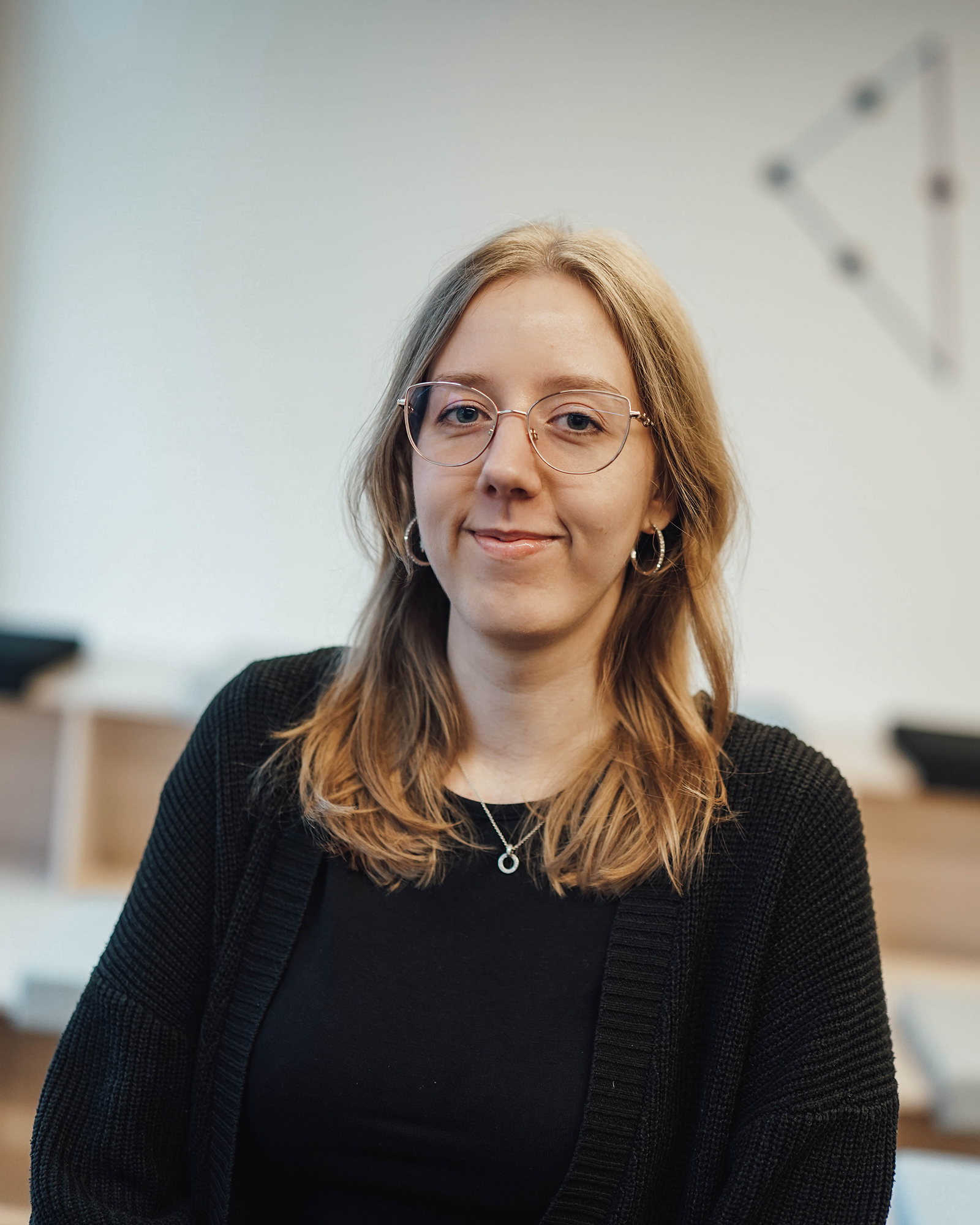 Programme coordinator
Programme coordinator
Miglė Gerčaitė

Head of study committee
Eglė Jakučionytė

Programme lecturer
Linas Tarasonis
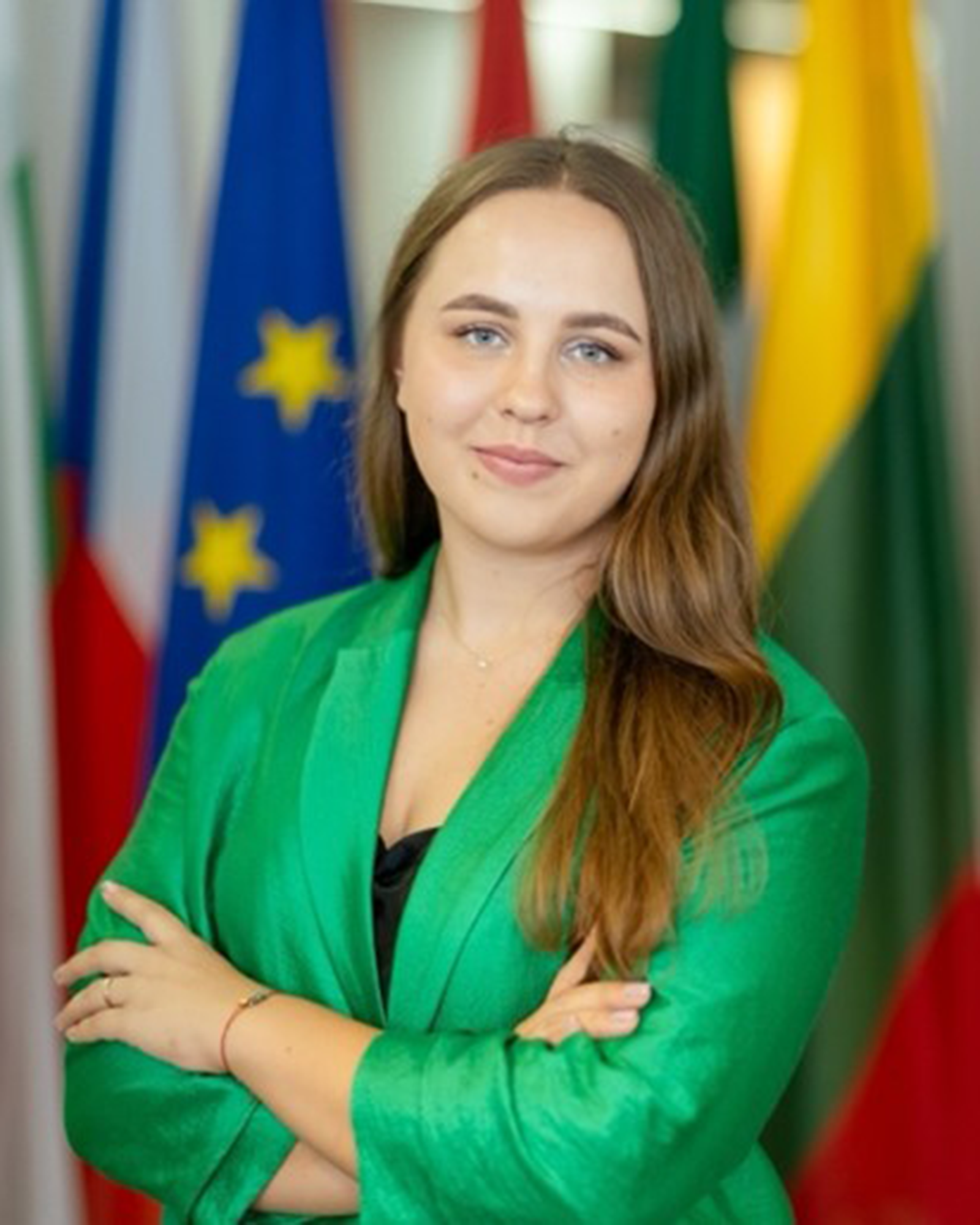
For Students
Students of this program choose their own places for internships, but the faculty, in cooperation with various business companies and state institutions, offers the opportunity to carry out internships according to signed partnership agreements. In the table you will find information about the opportunities for this study program and contacts where students can apply for internships directly.
|
|
|
||
|
|









